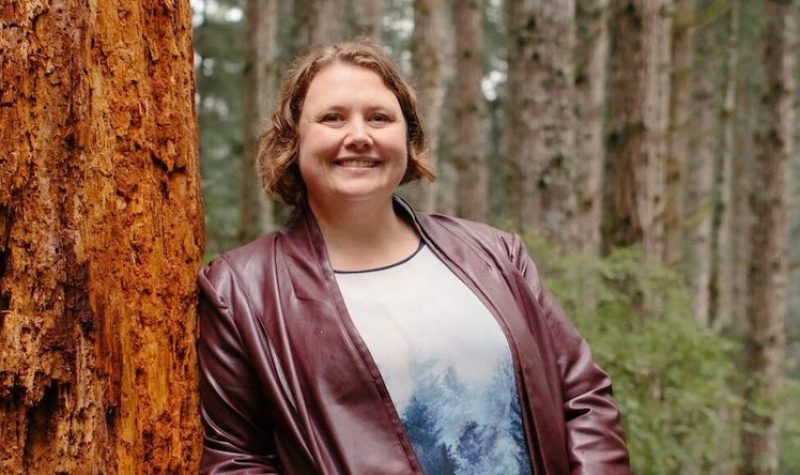By Roy L Hales
Our local Member of Parliament, Rachel Blaney, was appointed the NDP Deputy Critic for Crown-Indigenous Relations and Indigenous Services.
Growing up in an Indigenous family
In a recent interview, she said, “One on the things that people don’t know about me, is that I grew up in an indigenous family. My mother was a single mother and when I was two she met my dad. They got married and he legally adopted me when I was four. He’s from Stellat’en First Nation, which I always call Stellako, and is in the centre of British Columbia. A lot of my knowledge comes from growing up in one of these communities and it wasn’t until my parents got divorced that I found out I was adopted.”
She added, “I was quite concerned when I found I wasn’t as indigenous as I thought I was – although I was the only sibling with blond hair and blue eyes. I’m not sure how I didn’t notice, but I didn’t.”
Indigenous connections
Blaney still has strong connections to her adopted family in Stellako. One of her aunts is a hereditary chief.
Her husband, Darren Blaney, is the elected chief of the Homalco Nation and her children are also from Homathko.
Some of her relations by marriage are Klahoose and live on Cortes Island.
“I think that’s why, when we [recently] came to an event they made me dance the squirrel dance. I was actually the first one called to the floor,” she laughed. “I was like, ‘thank you.’
“And they were like, ‘we’re filming it’, so it is somewhere out there in the world.”

Question Period / Période des questions 25 Sept Ottawa, Ontario, on 25 September, 2020. © HOC-CDCCredit: Christian Diotte, House of Commons Photo Services
Appointment as Deputy Critic
Blaney said NDP party leader Jagmeet Singh is passionate about the issues that indigenous communities across Canada are facing.
So after the last election, he assumed the role as the principal party spokesperson for these concerns.
She added, “He made the decision, after the last election, to take on the role of the main spokesperson on these issues. He has asked me to be the Deputy because he is the leader and it is good to have a couple of people on the file. That means I would be very working very closely with the leader on both of those important departments and ministries to address concerns that Indigenous communities and people are bringing to us.”
When her appointment was announced, Singh said, “Rachel has proven that she is a strong ally for Indigenous people across the country and I have every faith that she will continue to work hard to push the government into making significant improvements in the lives of Indigenous people.”
Blaney explained, “I think what he sees reflected in the work I’ve done is a lot of connections with Indigenous communities across the [North Island-Powell River] riding. We have over twenty communities and a fairly significant urban population. He has seen the work that have done in building those relationships up.”
Vice Chair of the Indigenous and Northern Affairs Committee
Blaney’s recent term as Vice Chair of the Indigenous and Northern Affairs Committee brought her into contact with communities across Canada.
“Probably the most important [project] that we worked on was worked the legislation that was brought forward towards the end of parliament: Bill C92 – that talked about “that talks about a framework for indigenous communities to take back the power and capacity to address indigenous children in care.”
“There are more Indigenous children in care now than at the height of the residential system. There is obviously something wrong. When you see that many children in care, you know there is something broken in the system as well as in some of these families.”
While Blaney is proud of the work that the committee did, she feels the resulting legislation falls short.
“Unfortunately, after a lot of hard work and a lot of support from stakeholders, we did not get the government to change that. There were some changes that we did get them to do, but that fundamental one – not putting a dollar figure in the legislation, but making sure that there was something about equitable funding – would have made that legislation so much stronger.”
The situation today
“As of today, I believe Canada has been served with eight non-compliance orders. They found that Indigenous children are getting less money invested in them; less support for foster parents, especially ‘on reserve foster parents.’ Not enough in supporting families that the children can stay. They were identifying that some children were being taken because their housing was not called ‘good enough’ – and that was of no fault to the community members, who were living in housing the community provided. We had communities that lived in more remote areas that talked about the challenges when children were often taken so far away that there is no ability for them to be in contact in a meaningful way with any of the family. And there is no problem solving around any of those issues.”


